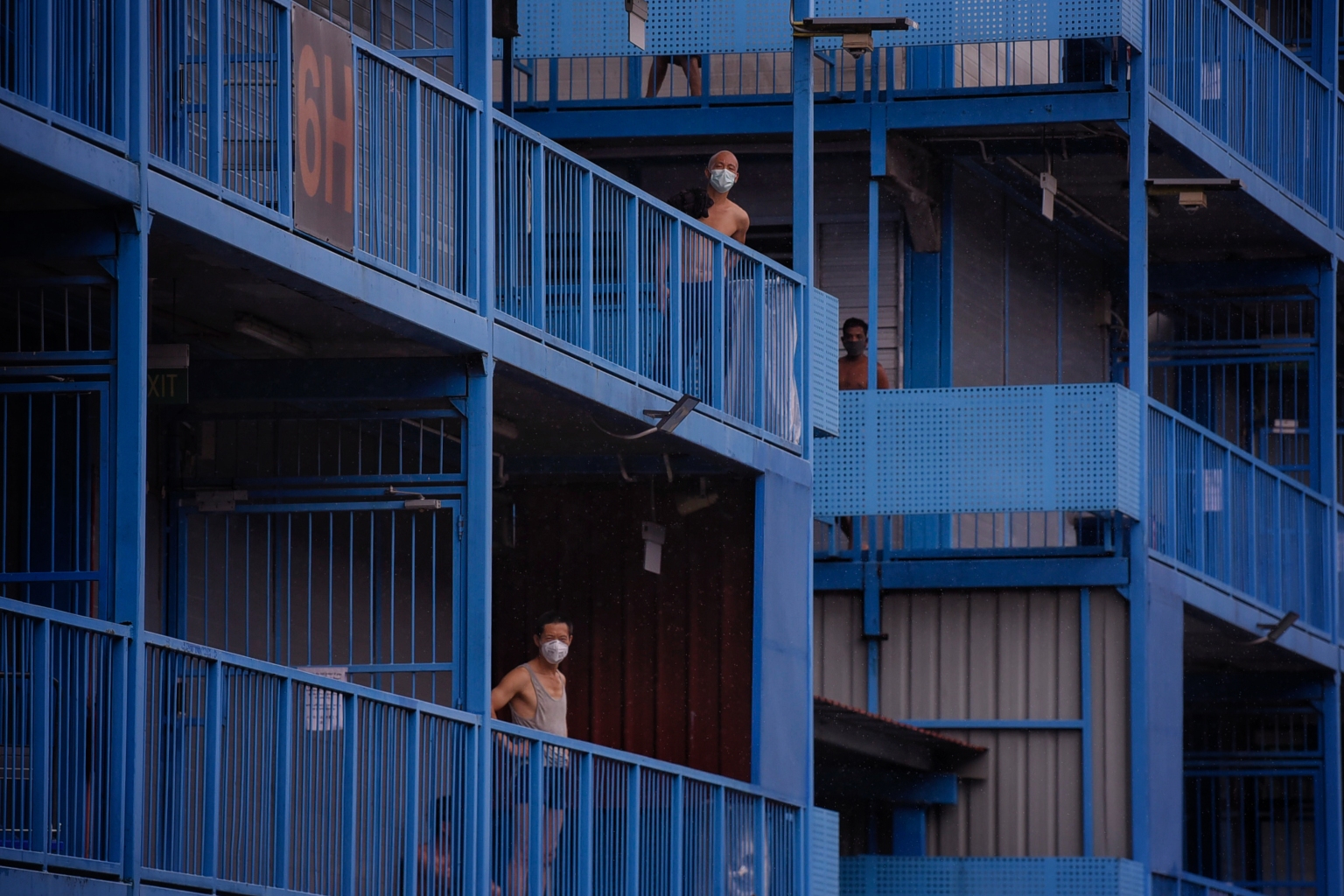New plans to house foreign workers to stem Covid-19
Recovered workers to be in separate housing within dorms, to minimise risk of recurrence
Sign up now: Get ST's newsletters delivered to your inbox

Health monitoring equipment is also being set up to help workers keep track of their own health.
ST PHOTO: MARK CHEONG
Singapore is moving into the next phase of its battle against the coronavirus outbreak in foreign worker dormitories, and will step up measures to monitor the workers' health and prevent recurrent transmissions there.
The next step will be to place recovered workers in separate housing within dorms, establish community care facilities in the worst-hit dorms for patients with mild symptoms, and transfer those no longer infectious to on-site recovery facilities being built.
A new group under the inter-agency task force on dorms will also focus on preventing infections from spreading at non-purpose-built dorms, such as factory-converted dorms and temporary quarters at construction sites.
New dorms will be built and short-term solutions such as floating hotels and cruise ships used.
Manpower Minister Josephine Teo told a press conference yesterday that the inter-agency task force tackling the dorm outbreaks had focused on getting the basics right - such as food, hygiene and salary arrangements - in phase one, before moving on to medical operations in phase two. To date, over 14,000 cases have been reported among foreign workers in dorms.
"We must now get ready for the third phase, where it is about getting the recovery right," she said. "This involves housing recovered workers in suitable accommodation and minimising the risks of recurring transmissions."
Medical equipment such as pulse oximeters to measure a person's blood oxygen levels and heart rate will be used, and workers are encouraged to seek help if their readings are abnormal. They can also consult doctors via video calls.
More than 25,000 foreign workers have been tested for the virus. Over 18,000 beds for isolation and care have been set up, with another 23,000 in the pipeline. Blocks set aside for recovered workers will be disinfected, and those moving in have to follow safe distancing.
"This will again be an enormous challenge, and not just the logistics of it," Mrs Teo said. "Many workers will be rehoused and have to get used to new friends. Many employers will have to adjust to their workers being in different locations with new arrangements."
In the wider community, circuit breaker measures are working and infection numbers are falling, said National Development Minister Lawrence Wong. But he said it is premature to expect life to return to normal once this wave of infections is past, or to believe Singapore will be virus-free by next month or July.
He said: "It only takes one case - one hidden case, one cryptic case - to cause new clusters to form."


